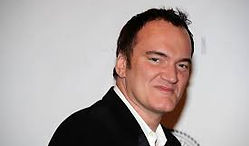directors of thrillers
Alfred Hitchcock
Hitchcock is definitely one of the most well-known and important filmmakers to date. His career spanned across the silent and sound eras, and although he was known primarily as a maker of suspenseful thrillers, his works also include distinctive elements of comedy, romance and drama. He was known as the "The master of suspense" and he fashioned for himself a recognisable directorial style. His stylistic trademarks include the use of camera movement that mimics a person's gaze, forcing viewers to engage in a form of voyeurism. In addition, he framed shots to maximise anxiety, fear, or empathy, and used innovative forms of film editing.
He was and still is one of the most influential of all filmmakers and many of his films are classics. To name only a few individual examples, The 39 Steps (1935), The Lady Vanishes (1938) are often-imitated spy thrillers mixing interest and romance; Psycho (1960) and The Birds (1963) have left a lasting imprint on horror films. Hitchcock is widely considered to be the archetypal auteur, popular at the box office, critically successful, and in many ways one of the best directors ever, He is seen as a model of how one could be dedicated to cinema even while working in a studio system primarily geared toward profit and entertainment.
He made over fifty films and hosted the long-running television series Alfred Hitchcock Presents (1955–1962), The series established him as a household name and a recognisable figure.
Quentin Tarantino
Quentin Tarantino has become known for a particular brand of film violence and controversy that has won him both accolades and awards.
Reservoir Dogs marks the start of Tarantino’s career as a writer and director. This violent heist film cleverly reworks the genre to focus on the aftereffects of action rather than on action, and its premiere at in 1992 started Tarantino’s career. But it was the sensation of Tarantino’s second film, Pulp Fiction (1994), that truly caught the attention of audiences and critics. It won multiple major awards and set box-office records, some say it solidified Tarantino’s directorial career and won him the designation of auteur.
Tarantino’s films are marked by unique styles that are easily identifiable. These stylistic signatures, such as numerous cinematic, musical, and pop cultural references, segments of humorous dialogue, extreme violence and complicated narrative timelines have made Tarantino a success and made is films identifiable due the unique way he makes them.




David Lynch


David Lynch (b. 1946) is one of the most significant filmmakers today. He is so significant that he term “Lynchian” is now used to describe strange and compelling scenarios not only in film, but also in television, music, and art.
His first feature film, the darkly comic Eraserhead (1977), was a success that brought him to the attention of large studios. But after the failure of the sci-fi adaptation Dune (1984) he returned to independent film making with the Blue Velvet (1986). His next film, Wild at Heart (1990), won the Palme d’Or at Cannes and In more recent years, Lynch’s work has focused intensely on Los Angeles, the myths of Hollywood, and the film making process.
Lynch’s films have repeatedly caused concerns because of the way he represents the uncanny power of dreams and fantasies, sexual intrigue, use of violence, and crude humour. Formally, his work is characterised by its complex narratives and unique sound design, while using a wide range of influences, from classical Hollywood and the styles of 1950s America.
Lynch has been both very successful and unsuccessful in his career which is what makes him so unique. He has made many people think about gender equality using his works and has certainly influenced many people throughout his career.
David Fincher


David Fincher is an American director and producer, notably for films, television series, and music videos. He was nominated for the Academy Award for Best Director and he won the Golden Globe Award for Best Director and the BAFTA Award for Best Direction.
Fincher likes to map out camera movements with CGI, commission intricate sets, get heavily involved in post-production, and re-shoot footage after the principal photography has wrapped. He does not normally use hand-held cameras when he shoots a film, preferring cameras on a tripod.
His most frequent use of a hand-held camera was for Se7en, in which five scenes were shot that way. Secondly, Fincher likes to confuse audiences with his camerawork. Sometimes, it is difficult to determine if a shot is human-controlled, motion-controlled or computer-generated imagery. Thirdly, close-ups are uncommon in Fincher's films. Fourthly, he tries to move his cameras as little as possible. Lastly, the interior of a refrigerator can be seen in a number of Fincher's films. This can be seen as part of character and story development.